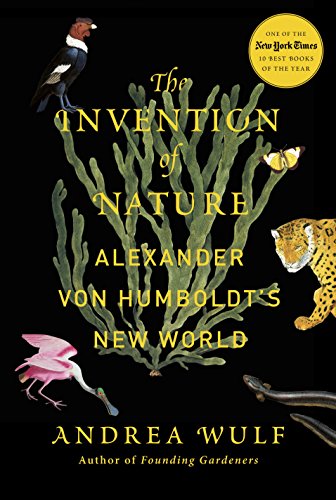
Andrea Wulf
The Invention of Nature
The Adventures of Alexander von Humboldt, the Lost Hero of Science
Get it on AmazonAlexander von Humboldt (1769-1859) was the most famous scientist of his age, a visionary German naturalist and polymath whose discoveries forever changed the way we understand the natural world. Among his most revolutionary ideas was a radical conception of nature as a complex and interconnected global force that does not exist for the use of humankind alone. In North America, Humboldt’s name still graces towns, counties, parks, bays, lakes, mountains, and a river. And yet the man has been all but forgotten.
In this illuminating biography, Andrea Wulf brings Humboldt’s extraordinary life back into focus: his prediction of human-induced climate change; his daring expeditions to the highest peaks of South America and to the anthrax-infected steppes of Siberia; his relationships with iconic figures, including Simón Bolívar and Thomas Jefferson; and the lasting influence of his writings on Darwin, Wordsworth, Goethe, Muir, Thoreau, and many others. Brilliantly researched and stunningly written, The Invention of Nature reveals the myriad ways in which Humboldt’s ideas form the foundation of modern environmentalism – and reminds us why they are as prescient and vital as ever.
Andrea Wulf | 5x15 Stories on YouTube.
The Invention of Nature Quotes
“Humboldt’s books, diaries and letters reveal a visionary, a thinker far ahead of his time. He invented isotherms – the lines of temperature and pressure that we see on today’s weather maps – and he also discovered the magnetic equator. He came up with the idea of vegetation and climate zones that snake across the globe. Most important, though, Humboldt revolutionized the way we see the natural world. He found connections everywhere. Nothing, not even the tiniest organism, was looked at on its own. ‘In this great chain of causes and effects,’ Humboldt said, ’no single fact can be considered in isolation.’ With this insight, he invented the web of life, the concept of nature as we know it today.”